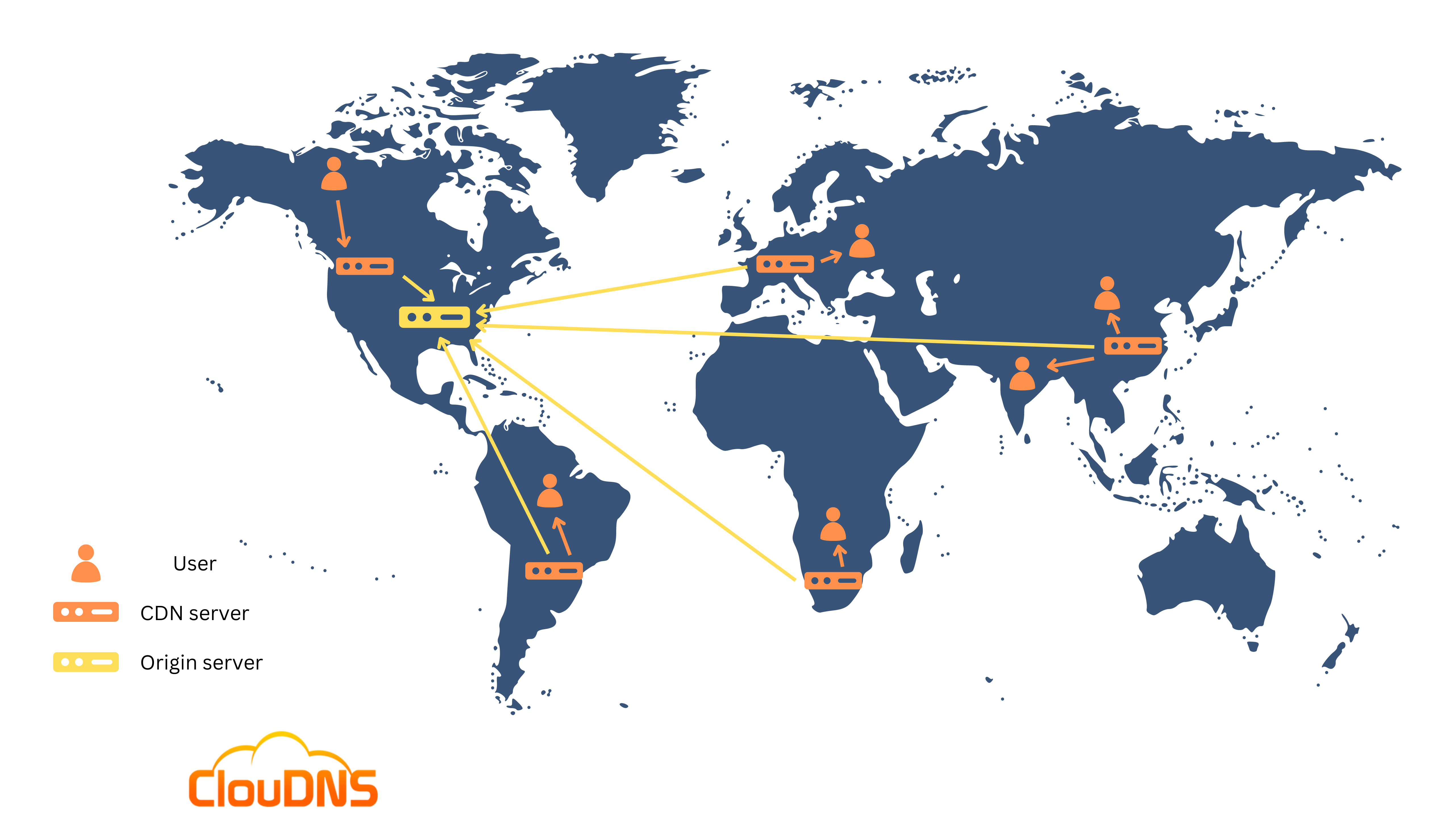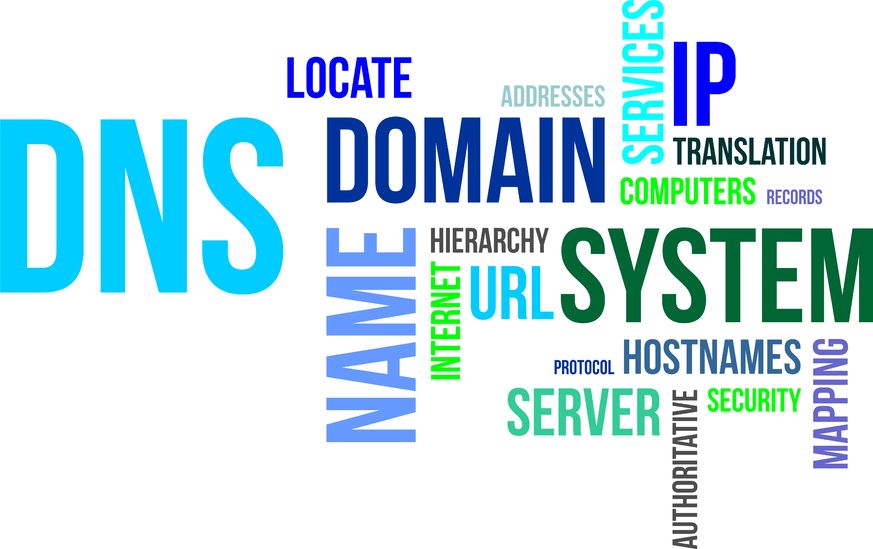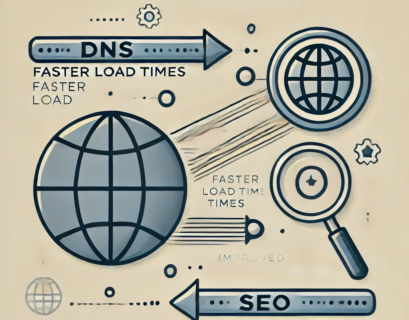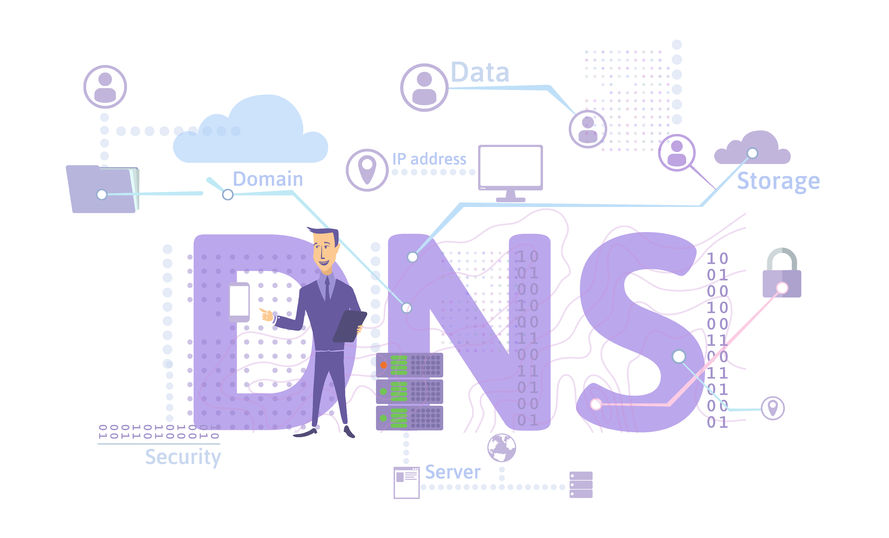A CDN – Content Delivery Network is responsible for the content delivery. We all interact with CDNs on a daily basis – when we watch a video, when we read an article, when we shop online or when we use a social network site. The main reason why they exist is to reduce latency, the delay between your demand and the moment it gets on your screen. Higher latency makes us impatient and gets us angry. There are many reasons it can happen, but the main is the physical distance between your computer and the server which hosts the website. CDN makes the magic of shortening that distance, and by doing so, it improves the speed dramatically.
Table of Contents
How does a CDN work?
To shorten the physical distance between the users and the hosting server, the CDN keeps cached versions of the original content in different geographical locations known as Points of Presence (PoP). Each of these PoPs is located strategically to serve to the users nearby.
This way, you as a user, don’t need to connect to the original source (the original server). The CDN will direct you to the closest connected server on the network, and you will get the cached version of the original version.

The benefits of a CDN
- The most obvious is the speed. The content loads faster. According to recent tests from the Content Delivery Network KeyCDN, using a CDN reduces website latency on average by 73% compared to websites running without a CDN.
- Handle heavy traffic. The load is handled between the PoPs and it is not so heavy for the original server.
- It reduces the bandwidth consumption.
- It is more secure and protects you from DDoS attacks, more Points of Presence (PoPs), fewer chances of your original server to be affected.
- Faster loading time will improve the SEO of the website.
- There are more benefits but these are the main. Based on these advantages, the CDNs are getting more and more popular every day. Especially for E-commerce and Entertainment.
Do I need a CDN for my website?
The internet has become quite dependent on Content Delivery Network to manage a significant amount of its content. But just because CDNs are a common practice doesn’t mean you need to consider investing in one. It’s necessary to understand how CDN DNS works and consider whether it’d be useful for your website’s needs.
CDNs are great for allowing users to access web content quickly and efficiently, even if they’re far away from where your web origin host is located. If most of your audience is nearby and can effectively access your website without much difficulty, then you may not need a CDN for your website. However, if you’re reaching a larger audience from different places, then it would be wise to invest in a CDN service. Video streaming websites, social media platforms, online journalism outlets, digital publications and eCommerce sites all benefit from having their own CDN, because it makes it easier for them to reach a larger global audience. It also allows for faster loading, which can provide more potential visitors and more potential readers.
Overall, the advantages of a fast-loading website far outweigh the costs, and should not be ignored.
Ready for ultra-fast DNS service? Click to register and see the difference!Experience Industry-Leading DNS Speed with ClouDNS!
Does DNS need to be modified to support CDN?
Yes, DNS must be modified to support CDN. Domain Name System (DNS) stores, logs and allocates the IP address of your web content between web users and your web server, so any change in web content needs to be reflected in the underlying DNS record. CDN, on the other hand, adds multiple distributed server networks to reduce the amount of time needed for content to travel from the origin to the final destination. In order for these different distributed networks to work effectively, the DNS must be configured to route requests through the CDN, which allows for quicker content delivery and reduced latency. Furthermore, CDNs also use DNS to direct visitors geographically to their nearest server, which helps reduce the time it takes for the web content to load on their browser.
How to create your own CDN using DNS
To set up a CDN using your own Anycast can be very expensive. But don’t worry, there are cheaper solutions. For example, you can use GeoDNS and ordinary servers with unique IP addresses. With our GeoDNS service you can build your own CDN or Geolocation Load Balancing with highly accurate geolocation service that makes the decisions based on the real location of the visitor, not on the location of the DNS resolver. You can easily configure your DNS zone to show American server IP to the visitors from The USA and to the European visitors, another IP from Europe.
It might sound hard to you but don’t worry, we can help you. Our professional team of experts can provide you directions and you can start benefiting from your CDN in no time. Give it in our hands and we will do all the configuration needed.
So what are you waiting for? Make the experience for your visitors better and faster. Segment your traffic and send users to the servers designed just for them. This can increase their happiness and make them more likely to engage and convert.
Conclusion
A CDN is essential for improving website speed, reducing latency, and enhancing user experience. By caching content across multiple locations, it ensures faster load times and better performance.
DNS plays a key role in CDN functionality, enabling efficient traffic routing and optimized content delivery. Using solutions like GeoDNS allows businesses to control traffic flow and improve reliability.
Whether using a managed CDN or building one with DNS, the benefits are clear – faster websites, improved SEO, and a better user experience. Investing in the right CDN strategy ensures a stronger, more resilient online presence.






